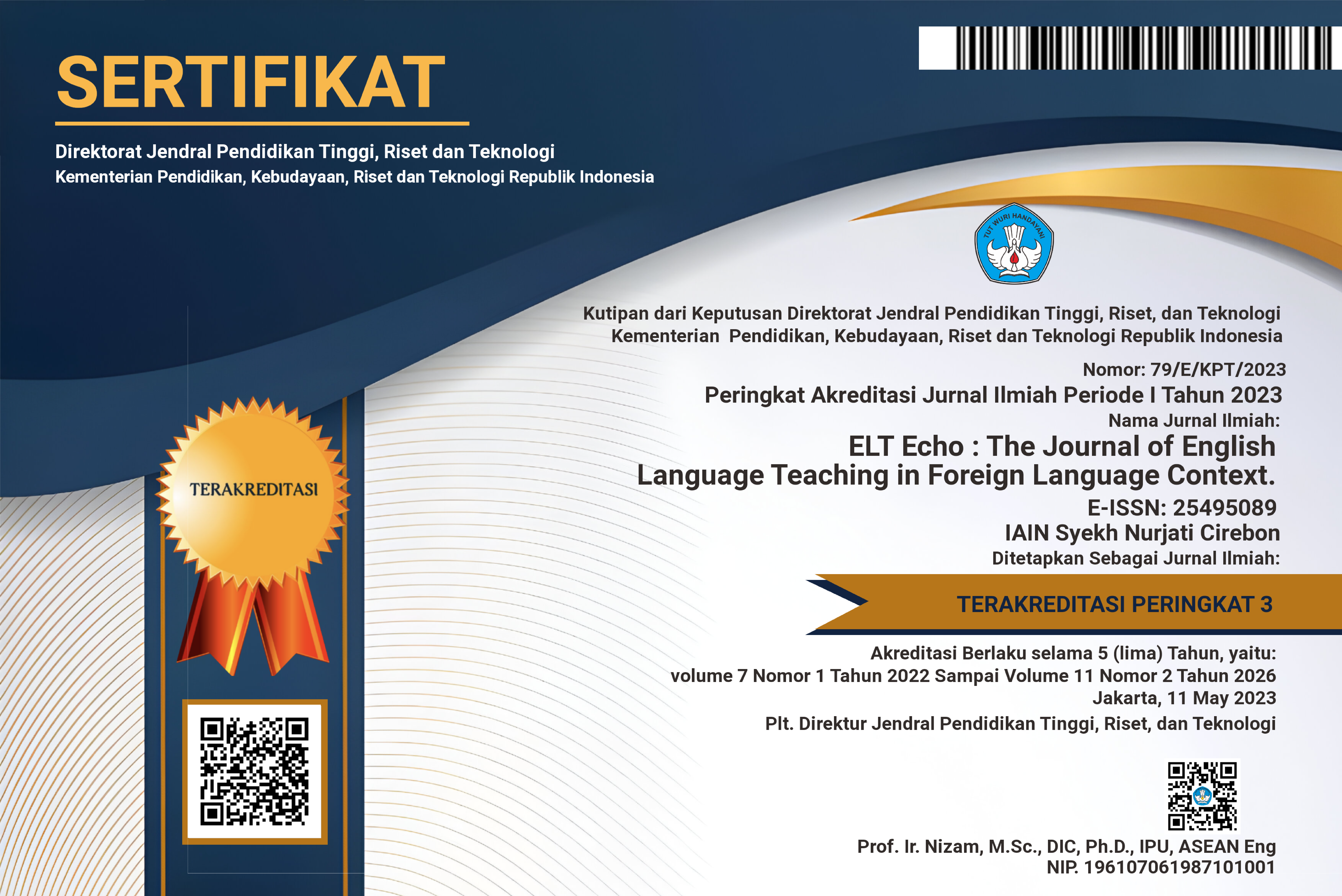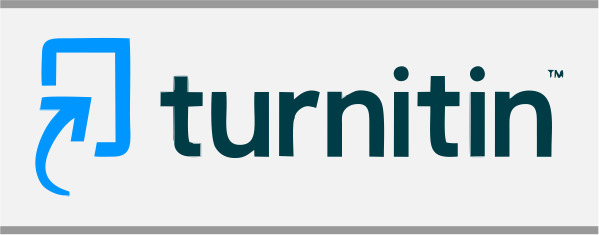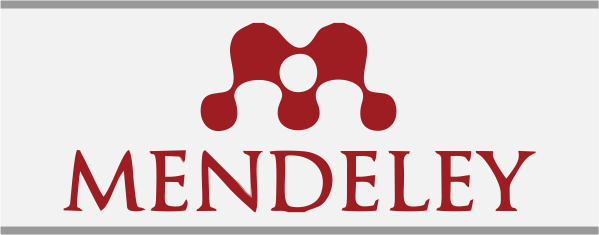Investigating English Education Master Students' Perceptions on Critical Thinking Skills
(1) I am an English teacher at Cita Hati International School
(*) Corresponding Author
Abstract
Abstract: One of the prominent and indispensable higher-order thinking skills that need to be fully mastered by EFL learners in this modern age is critical thinking. In the light of critical thinking skills, EFL learners are believed to be succeeded in both academic and real-life situations since they have become more strategic thinkers capable of managing their language learning enterprises. This small-scale qualitative study employed qualitative content analysis to fully obtain more renewable research findings influential for the betterment of ELT enterprises. Two research instruments were also harnessed to fulfill this major research objectivity namely the Likert-scale questionnaire and open-ended written narrative inquiry questions. The participants taking part voluntarily in this study were 15 English Education Master Students of Sanata Dharma University, Yogyakarta. Based on the obtained findings, two specific themes could be attained namely (1) Critical thinking skills enabled EFL learners to attain more fruitful target language learning outcomes, and (2) Critical thinking skills allowed EFL learners to be more life-long knowledge seekers. To holistically promote a higher degree of critical thinking skills for diverse EFL learners, language educators in this archipelago are strongly advocated to sustainably instill more engaging, meaningful, and contextual learning dynamics. Â
Keywords: critical thinking skills, English Education Master Students, qualitative   content analysis
Keywords
Full Text:
PDFReferences
REFERENCES
Ahmet, A. K. I. N., Hamedoglu, M. A., Arslan, S., Ümran, A. K. I. N., Çelik, E., Çınar, K. A. Y. A., & ARSLAN, N. (2015). The adaptation and validation of the Turkish version of the Critical Thinking Disposition Scale (CTDS). International Journal of Educational Researchers, 6(1), 31-35.
Akın, F., Koray, Ö., & Tavukçu, K. (2015). How effective is critical reading in the understanding of scientific texts?. Procedia-social and behavioral sciences, 174, 2444-2451.
Al Zahrani, B. S., & Elyas, T. (2017). The implementation of critical thinking in a Saudi EFL context: Challenges and opportunities. IJELTAL (Indonesian Journal of English Language Teaching and Applied Linguistics), 1(2), 133-141.
Alagözlü, N., & Süzer, S. S. (2010). Language and cognition: Is critical thinking a myth in Turkish educational system?. Procedia-Social and Behavioral Sciences, 2(2), 782-786.
Anderson, P., & Reid, J. (2011). Collaboration of research and teaching produces a new course of study in critical thinking. In International Symposium on Integrating Research, Education, and Problem Solving.
Brown, J., & David, I. (2010, August). Teaching critical thinking to first year university students. In Proceedings of the 8th International Conference, of Teaching Statistics, Slovenia, August 2010.
Bumela, L. (2020). Designing 21st Century Language Learning Scenario in Indonesia: A Perspective from Computer-Assisted Language Learning. Indonesian Journal of Arabic Studies, 2(1), 2.
Dehghani, M., Pakmehr, H., & Malekzadeh, A. (2011). Relationship between students’ critical thinking and self-efficacy beliefs in Ferdowsi University of Mashhad, Iran. Procedia-Social and Behavioral Sciences, 15, 2952-2955.
Dwee, C. Y., Anthony, E. M., Salleh, B. M., Kamarulzaman, R., & Abd Kadir, Z. (2016). Creating thinking classrooms: perceptions and teaching practices of ESP practitioners. Procedia-Social and Behavioral Sciences, 232, 631-639.
Enciso, O. L. U., Enciso, D. S. U., & Daza, M. D. P. V. (2017). Critical thinking and its importance in education: Some reflections. Rastros Rostros, 19(34), 78-88.
Erikson, M. G., & Erikson, M. (2019). Learning outcomes and critical thinking–good intentions in conflict. Studies in Higher Education, 44(12), 2293-2303.
Facione, P. A. (2011). Critical thinking: What it is and why it counts. Insight assessment, 2007(1), 1-23.
Florea, N. M., & Hurjui, E. (2015). Critical thinking in elementary school children. Procedia-Social and behavioral sciences, 180, 565-572.
Ghanizadeh, A. (2017). The interplay between reflective thinking, critical thinking, self-monitoring, and academic achievement in higher education. Higher Education, 74(1), 101-114.
Henderson Hurley, M., & Hurley, D. (2013). Enhancing Critical Thinking Skills among Authoritarian Students. International Journal of Teaching and Learning in Higher Education, 25(2), 248-261.
Hughes, C. (2014). Theory of Knowledge aims, objectives and assessment criteria: An analysis of critical thinking descriptors. Journal of Research in International Education, 13(1), 30-45.
Indah, R. N., & Kusuma, A. W. (2016). Factors affecting the development of critical thinking of Indonesian learners of English language. Journal Of Humanities And Social Science, 21(6), 86-94.
Jannah, M. R. (2021). Critical Thinking Analysis on History External Campus Organization for Millennial Generation in Indonesia.
Kabeel, A. R., & Eisa, S. A. E. M. M. (2016). The Correlation of Critical Thinking Disposition and Approaches to Learning among Baccalaureate Nursing Students. Journal of Education and Practice, 7(32), 91-103.
Karabiyik, C. (2019). The Relationship between Student Engagement and Tertiary Level English Language Learners' Achievement. International Online Journal of Education and Teaching, 6(2), 281-293.
Kim, H. K. (2017). Critical thinking and critical pedagogy in English language teaching. The Linguistic Association of Korea Journal, 25(4), 41-58.
Kim, M. K., & Pollar, V. A. (2017). A modest critical pedagogy for English as a foreign language education. Education as Change, 21(1), 50-72.
Kusmaryani, W., Musthafa, B., & Purnawarman, P. (2019, April). The influence of mobile applications on students’ speaking skill and critical thinking in English language learning. In Journal of Physics: Conference Series (Vol. 1193, No. 1, p. 012008). IOP Publishing.
Leach, B. T. (2011). Critical thinking skills as related to university students' gender and academic discipline (Doctoral dissertation, East Tennessee State University).
Mayring, P. (2004). Qualitative content analysis. A companion to qualitative research, 1(2), 159-176.
Pratama, Y. A., Sopandi, W., & Hidayah, Y. (2019). RADEC Learning Model (Read-Answer-Discuss-Explain And Create): The Importance of Building Critical Thinking Skills In Indonesian Context. International Journal for Educational and Vocational Studies, 1(2), 109-115.
Rezaei, H., Shafiabady, A., Ghaedi, Y., Delavar, A., Esmaeili, M., & Moghaddam, L. F. (2017). Reasoning, critical thinking and attitudes toward substance abuse in adolescence: Explaining the mediator role of emotional intelligence. European Psychiatry, 41(S1), s861-s861.
Rincker, L. (2015). Critical thinking dispositions of students receiving livestock evaluation training (Doctoral dissertation).
Rohadi, T. (2018). Critical Literacy Based Instructional Reading Materials. Loquen: English Studies Journal, 11(1), 16-27.
Rohmah, I. I. T., Saleh, M., Faridi, A., & Fitriati, S. W. (2019). Language assessment pattern for primary education in the content and language integrated learning (CLIL) classroom context. Asian EFL Journal, 21(2.2), 101-123.
Sadeghi, F., Adel, S. M. R., Zareian, G., & Davoudi, M. (2020). Iranian EFL Teachers’ and Learners’ Perceptions of the Principles of Critical Thinking: A Constructivist Grounded Theory Study. Iranian Journal of Language Teaching Research, 8(2), 63-81.
Saleh, S. E. (2019). Critical thinking as a 21st century skill: conceptions, implementation and challenges in the EFL classroom. European Journal of Foreign Language Teaching.
Semerci, Ç., & ELALDI, Ş. (2014). The Roles of Metacognitive Beliefs in Developing Critical Thinking Skills (Eleştirel Düşünme Becerilerinin Gelişiminde Üstbilişsel İnançların Rolü. Bartın University Journal of Faculty of Education, 3(2), 317-333.
Semerci, N. (2016). The development of critical thinking disposition scale (CTHD): Study on the revision of validity and reliability. International Periodical for the Languages, Literature and History of Turkish or Turkic, 11(9), 725-740.
Taghva, F., Rezaei, N., Ghaderi, J., & Taghva, R. (2014). Studying the relationship between critical thinking skills and students’ educational achievement (Eghlid Universities as case study). International Letters of Social and Humanistic Sciences, 25(2), 18-25.
Tanaka, J., & Gilliland, B. (2017). Critical thinking instruction in English for academic purposes writing courses: A dialectical thinking approach. TESOL Journal, 8(3), 657-674.
Toharudin, U. (2015). Critical thinking and problem solving skills: How these Skills are needed in Educational Psychology. International Journal of Science and Research (IJSR), 6.
Toshpulatova, D., & Kinjemuratova, A. (2020). Teacher Perceptions on Developing Students' Critical Thinking Skills in Academic English Module. International Journal of Psycho-Educational Sciences, 9(1), 48-60.
Tous, M. D., Tahriri, A., & Haghighi, S. (2015). The Effect of Instructing Critical Thinking through Debate on Male and Female EFL Learners' Reading Comprehension. Journal of the Scholarship of Teaching and Learning, 15(4), 21-40.
Tuzlukova, V., & Usha-Prabhukanth, K. (2018). Critical thinking and problem solving skills: English for science foundation program students' perspectives. Zbornik radova Filozofskog fakulteta u Prištini, 48(3), 37-60.
Ãœnsar, A. S., & Engin, E. (2013). A case study to determine critical thinking skills of university students. Procedia-Social and Behavioral Sciences, 75, 563-569.
Veliz, L., & Veliz-Campos, M. (2019). An interrogation of the role of critical thinking in English language pedagogy in Chile. Teaching in Higher Education, 24(1), 47-62.
Wahyudi, R., Rukmini, D., & Bharati, D. A. L. (2019). Developing Discovery Learning-Based Assessment Module to Stimulate Critical Thinking and Creativity of Students’ Speaking Performance. English Education Journal, 9(2), 172-180.
Warsah, I., Morganna, R., & Uyun, M. (2021). The Impact of Collaborative Learning on Learners' Critical Thinking Skills. International Journal of Instruction, 14(2), 443-460.
Warsah, I., Morganna, R., & Uyun, M. (2021). The Impact of Collaborative Learning on Learners' Critical Thinking Skills. International Journal of Instruction, 14(2), 443-460.
Wass, R., Harland, T., & Mercer, A. (2011). Scaffolding critical thinking in the zone of proximal development. Higher Education Research & Development, 30(3), 317-328.
Yang, Y. T. C., & Gamble, J. (2013). Effective and practical critical thinking-enhanced EFL instruction. ELT journal, 67(4), 398-412.
Yükselir, C. (2020). A Quantitative Study of Turkish EFL Learners' Perceptions about Critical Thinking Dispositions. International Online Journal of Education and Teaching, 7(1), 126-139.
Zhang, H., Yuan, R., & He, X. (2020). Investigating university EFL teachers’ perceptions of critical thinking and its teaching: Voices from China. The Asia-Pacific Education Researcher, 29(5), 483-493.
DOI: 10.24235/eltecho.v8i1.8879
Article Metrics
Abstract view : 18 timesPDF - 5 times
Refbacks
- There are currently no refbacks.
Â
This Journal is indexed by:
Â

This work is licensed under a Creative Commons Attribution 4.0 International License.










